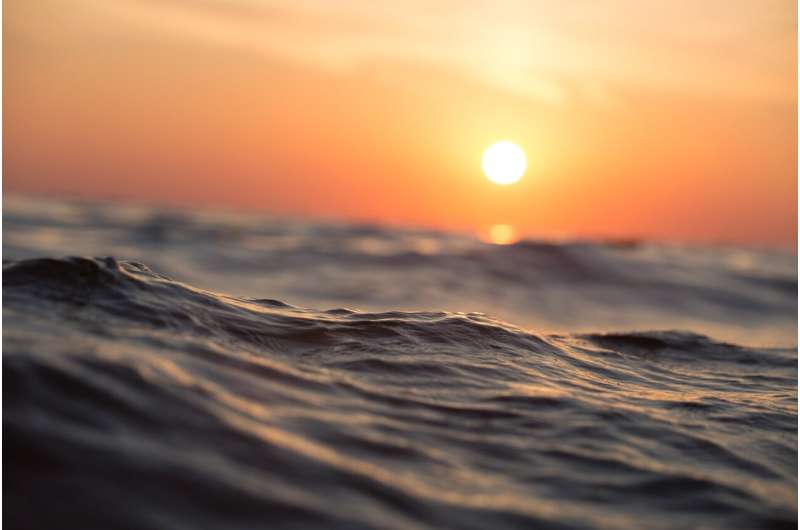Summer heat waves producing 'dramatic' climate impacts, say New Zealand researchers

Heat waves in Aotearoa New Zealand over recent summers are already causing wide-ranging effects on the environment, a new study suggests.
Summer heat waves in 2017/18, 2018/19 and 2021/22 saw the warmest months on record, with many more warm days (≥ 25ºC) than usual, says Dr. Jim Salinger, the study's lead author and adjunct research fellow at Te Herenga Waka—Victoria University of Wellington.
"These warm season heat waves (from November to March) all produced dramatic climate impacts across New Zealand, including marine heat wave conditions and major loss of glacier ice volume in the Southern Alps.
"Combined, the three recent heat waves peeled 17% of the total ice off the Southern Alps glaciers, which have lost half their volume since 1949—down from 65 to 32 km3 by 2021," Dr. Salinger says.
Off the north-west and south-west coasts of New Zealand, marine heat wave conditions were extreme during these events.
Professor James Bell, a co-author of the study and marine biologist at Victoria University of Wellington, says the increasing frequency and strength of marine heat waves is a major concern.
"The impacts on marine fauna of the 2021/22 heat wave were much larger than any that have been reported during previous heat waves, although they were disproportionately felt among some marine organisms," Professor Bell says.
Kororā Little Penguins in the Bay of Plenty are among the species that researchers believe may have taken a hit from warming waters. The study suggests the 2021/22 marine heat wave may be linked to the starvation and death of kororā in the region with rising sea surface temperatures potentially affecting the animal's ability to find food.
Heat waves have also been linked to the widespread bleaching of marine sponges across the north and south of New Zealand, affecting millions of sponges.
"For most marine species in our waters, we don't know their thermal thresholds—the temperatures they're able to tolerate—so it's possible that future, more intense marine heat waves will have even bigger impacts than we've seen to date," Professor Bell says.
Study co-author Professor James Renwick, a professor of physical geography at the University, says heat waves of this type used to be rare, occurring once every few hundred years, but they're now happening more often as the climate warms.
"By the late 20th century, heat waves were occurring once every 40 years. With 1.5°C of warming, events such as we've seen in recent summers would have estimated recurrence intervals of two to three years. With 2°C of warming, these summers would be considered cool relative to what we'd experience with +2°C of warming," Professor Renwick says.
Dr. Salinger says New Zealand temperatures have increased by 1.1ºC since the 1870s.
"Recent summer heat waves are the result of this regional warming coinciding with often strong La Niña and positive Southern Annular Mode conditions pushing anticyclones across southern New Zealand and to the east, with more frequent warm moist easterlies and north easterlies across the North Island," he says.
The heat wave study is published in the journal Weather and Climate.
More information: Coupled ocean-atmosphere summer heatwaves in the New Zealand region: an update. www.metsoc.org.nz/resources/Do … 2_Salinger_et_al.pdf
Provided by Victoria University of Wellington El Niño is coming, and ocean temps are already at record highs. That can spell disaster for fish and corals
No comments:
Post a Comment